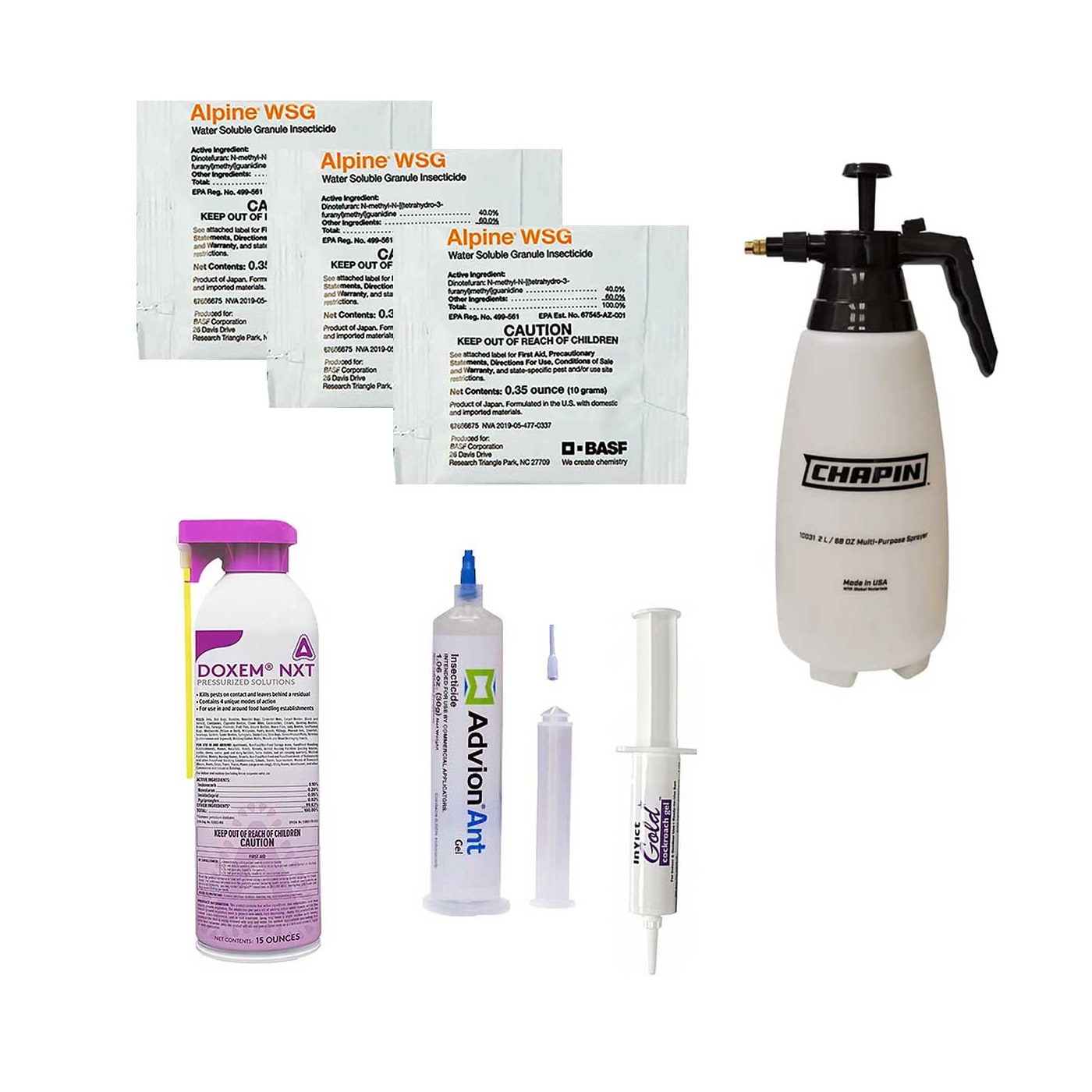Pestwise Fundamentals Explained
Pestwise Fundamentals Explained
Blog Article
The Best Guide To Pestwise
Table of ContentsThe Pestwise PDFsHow Pestwise can Save You Time, Stress, and Money.Pestwise Things To Know Before You Get ThisThe Greatest Guide To PestwiseNot known Factual Statements About Pestwise Some Known Questions About Pestwise.The Main Principles Of Pestwise

Q. Define "incorporated insect monitoring" (IPM) and checklist a number of feasible control methods that might be made use of in an IPM technique. A. Integrated pest administration is the incorporating of proper pest control techniques into a single strategy to decrease parasites and their damage to an appropriate degree. Insect control techniques might consist of: host resistance, biological control, social control, mechanical control, sanitation, and chemical (pesticide) control.
More About Pestwise
What can you do to keep the insects you are trying to manage from coming to be immune to the pesticides you use? A. Insect resistance can be minimized by making use of incorporated pest management and rotating the kinds of chemicals utilized.
Parasites are a crucial danger to the farming service, and incorporated parasite monitoring aids farmers address and alleviate these threats. Integrated parasite monitoring makes use of numerous approaches in facility, therefore being a much more efficient option to the problem. Bug Exterminator. Particularly, removing hostile chemical techniques enables reducing harm to individuals and the setting by utilizing all-natural and safer alternatives instead
The Basic Principles Of Pestwise
The objective of integrated parasite administration is to reduce this injury and control acceptable infestation levels instead of remove all undesired populaces. This is why it is essential to recognize what procedures are justified in each instance and use hostile ones only when other incorporated administration strategies don't function. Integrated administration mitigates the unfavorable consequences of a non-IPM technique, and the major benefits of IPM Conveniences of IPM.
An appropriate understanding of the problem scope establishes if the problem must be addressed. are the next parts of an IPM program because it is crucial to understand if the organisms make prospective threats and pick the integrated management choices or the certain chemical use. mean to lower problems by applying different agronomic methods.
Pestwise Fundamentals Explained
if avoidance was inadequate. Integrated monitoring alternatives in an IPM program start with more secure to more aggressive ones. Target or broadcast chemical spraying might adhere to manual elimination or trapping that hasn't assisted. The above-mentioned integrated management facets aid recognize exactly how to prepare and execute an IPM program detailed: Display your plants consistently.

Amongst others, IPM social techniques include the following field management techniques: soil treatment; option of ideal plants; plant turning; interplanting or strip chopping; option of growing dates; weed control; use of trap plants. Beneficial soil conditions quicken plant development, and strenuous plants are a lot more resistant to infestations. Pest Control Services. In incorporated insect management, dirt testing aids recognize if the field appropriates for the production of this or that plant, and afterwards use the lacking nutrients to ensure plant healthy and balanced development
Pestwise Things To Know Before You Get This
No-till practices aid stop soil disintegration, contributing to sustainable farming. When tilling is required, it is advised to conduct it in the loss to expose them to all-natural enemies and serious climate. Healthy plants and seeds determine successful crop growth, so it is essential to pick pest-free planting material with solid roots.
Thus, among other applications, plant turning can be properly used as an integrated insect administration approach. Vermin spread out slower if rows address of various plant kinds divide their host plants in intercropping or strip chopping, which is additionally used in the integrated pest management system. On the other hand, infestations increase when plants of the same crop type or family grow together.
Potato beetles can harm growing potatoes, as well as tomatoes. Growing catch plants in patches is another choice for IPM intercropping. This integrated pest monitoring approach recommends drawing in insects to specific plants and after that regulating them with chemical or mechanical strategies. Particularly, you can grow soybeans as catch plants for Japanese beetles.
Some Ideas on Pestwise You Should Know
Obstacles are common instances of physical IPM approaches. Mature bugs or their eggs and larvae are accumulated by hand and destroyed.

Division of Plant Sciences. College of Missouri. Dirt solarization is an effective integrated monitoring technique to disinfect the field by warming it in an all-natural way. This integrated administration approach implies a typical method of ruining parasites by killers, parasitoids, pathogens, and other biological control representatives (aka antagonistic organisms). The function of organic control in IPM is to.
The Facts About Pestwise Uncovered
With time, their population became a real nuisance to farmers along with aboriginal kangaroos or dingoes. The walking stick toad is one more case illustrating incorporated organic control failure hereof when it rejected to quest the target types and came to be a parasite itself. Parasitoids establish on or within their hosts to ultimately kill them after growing.
Report this page